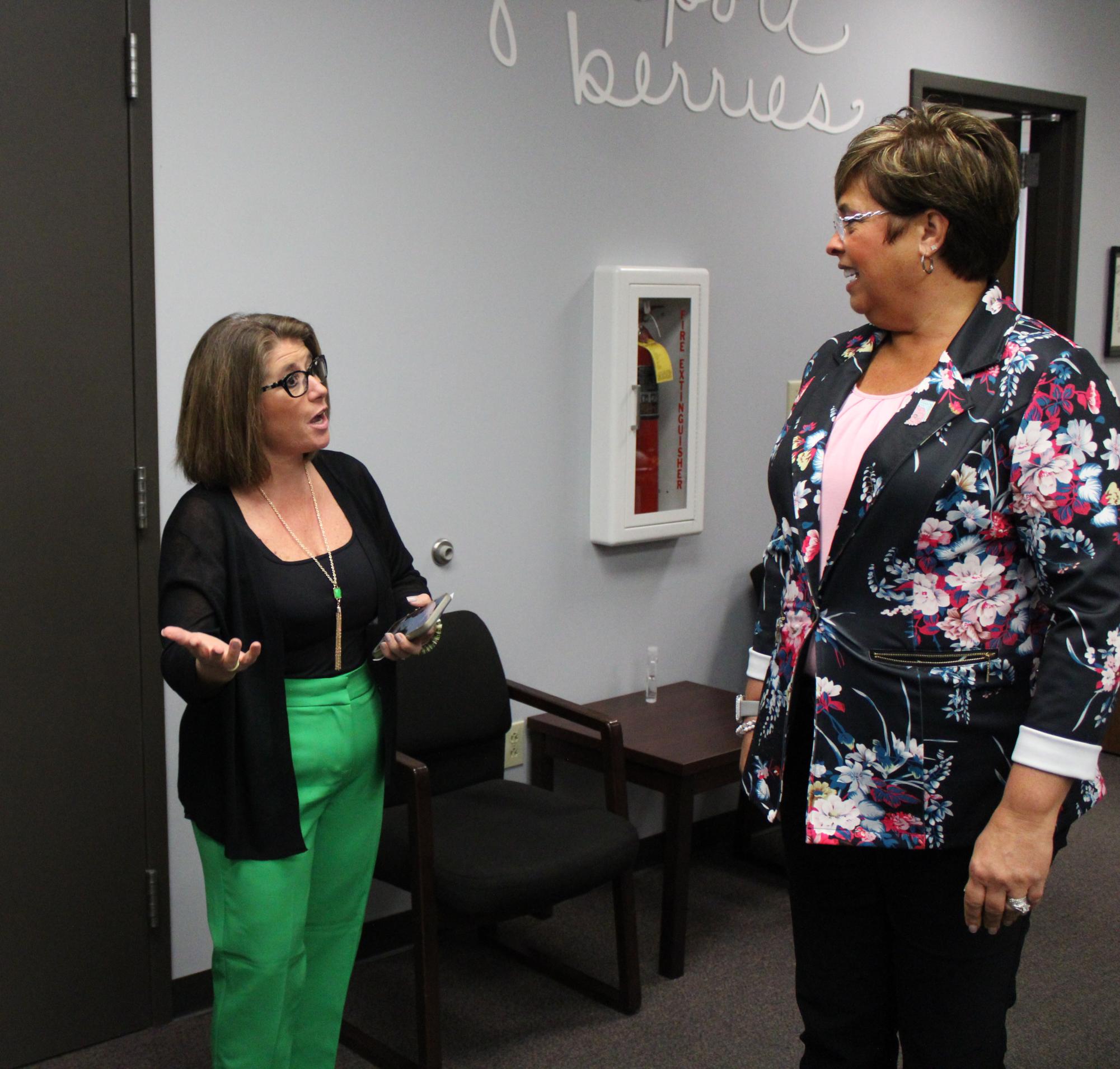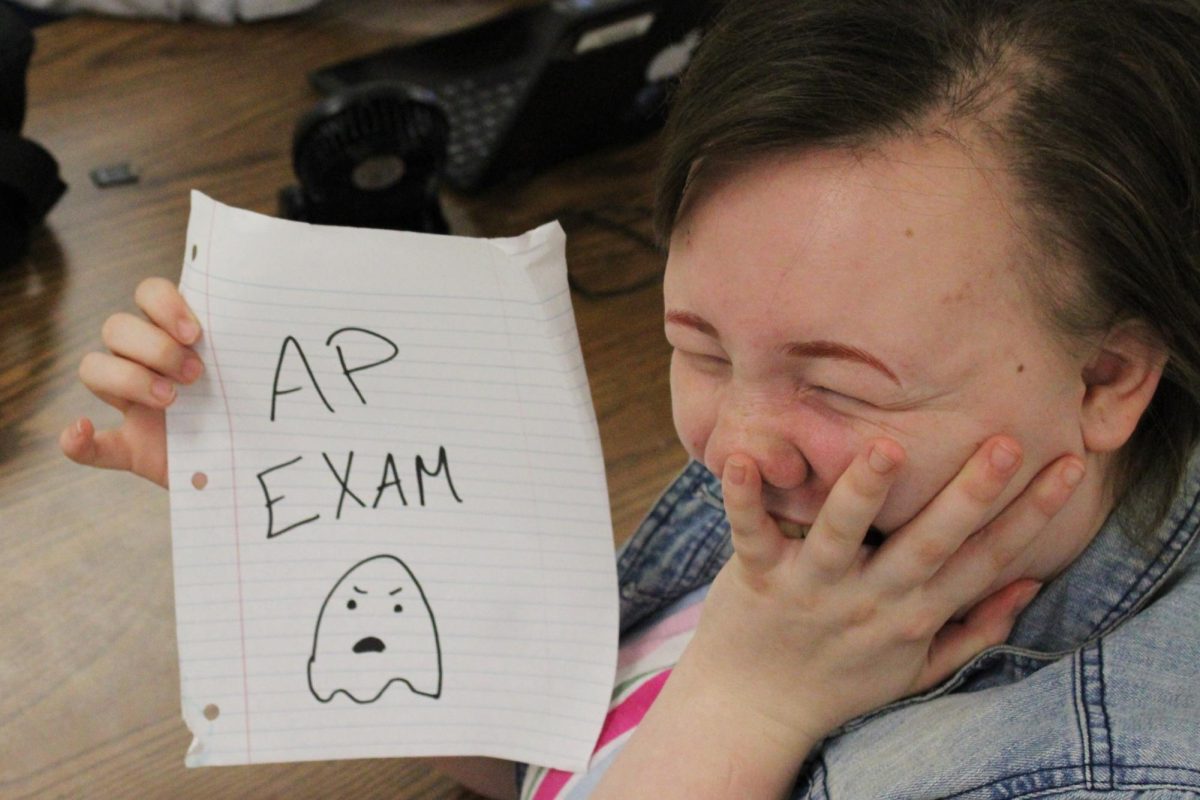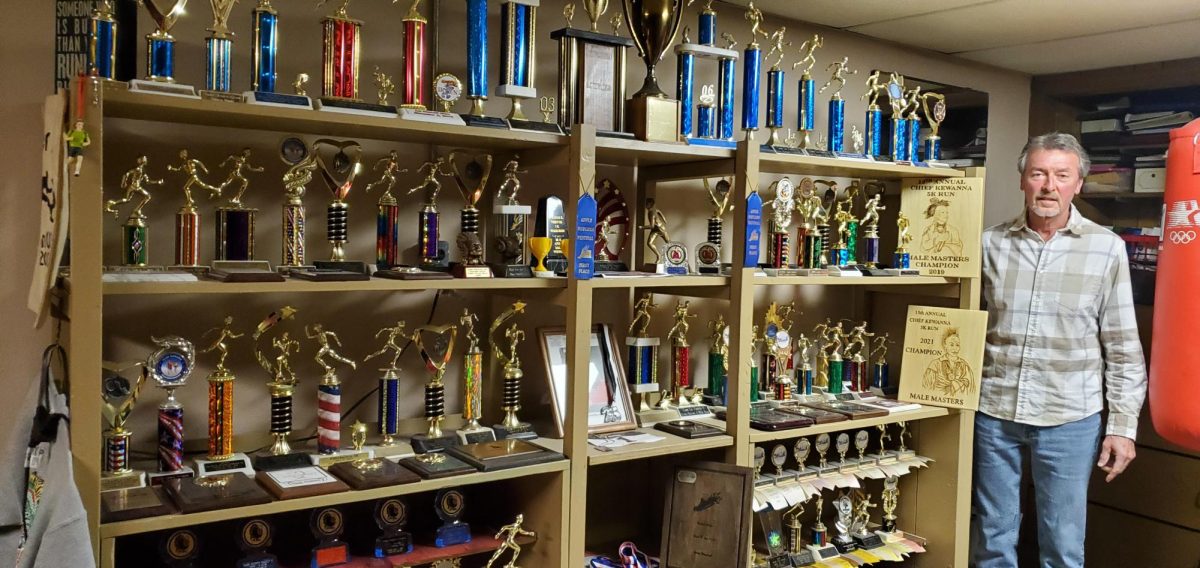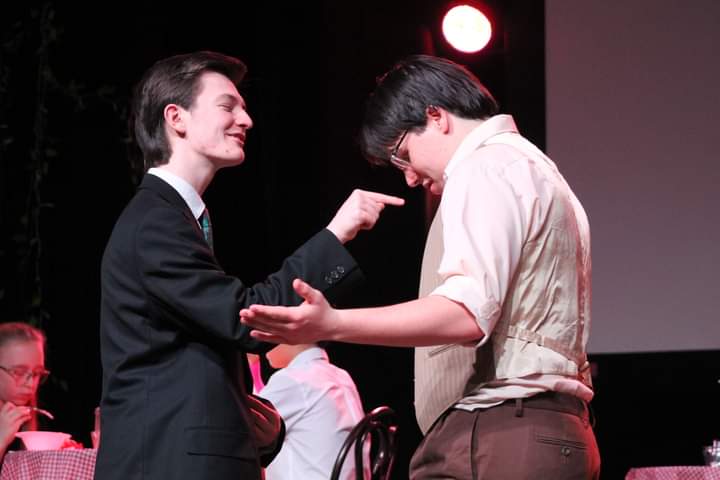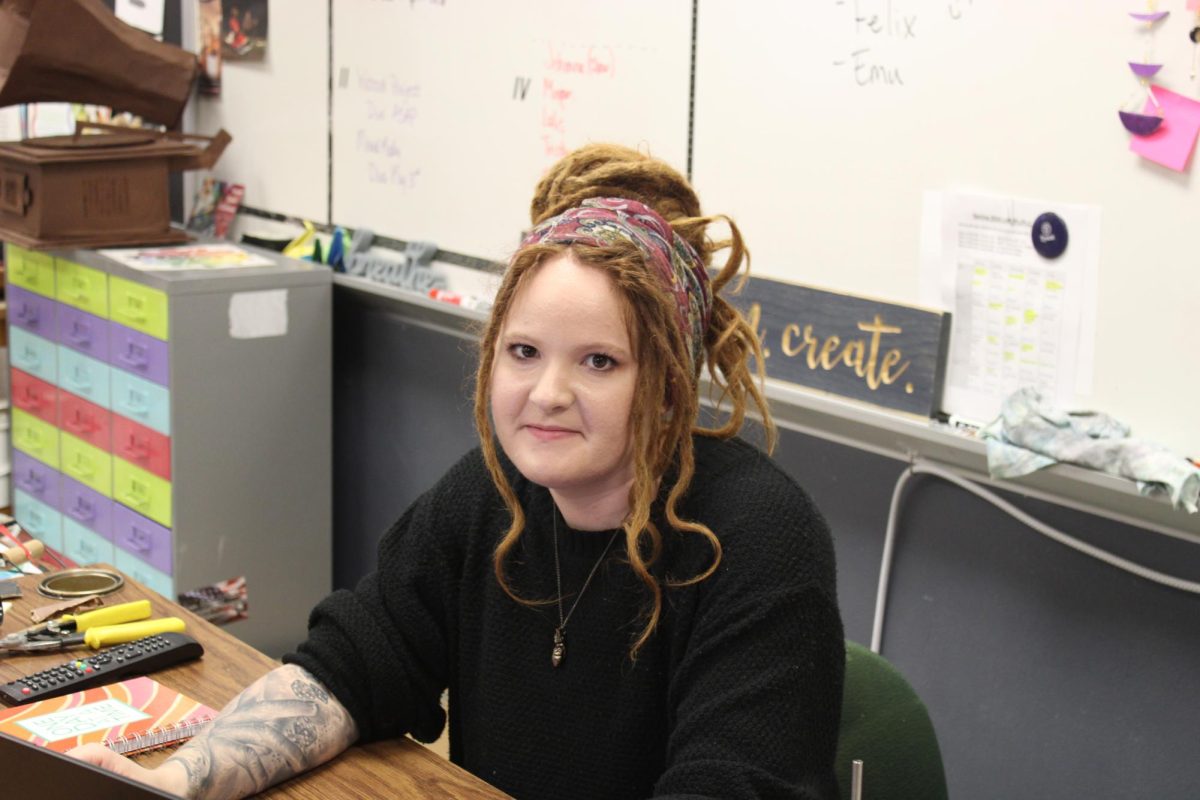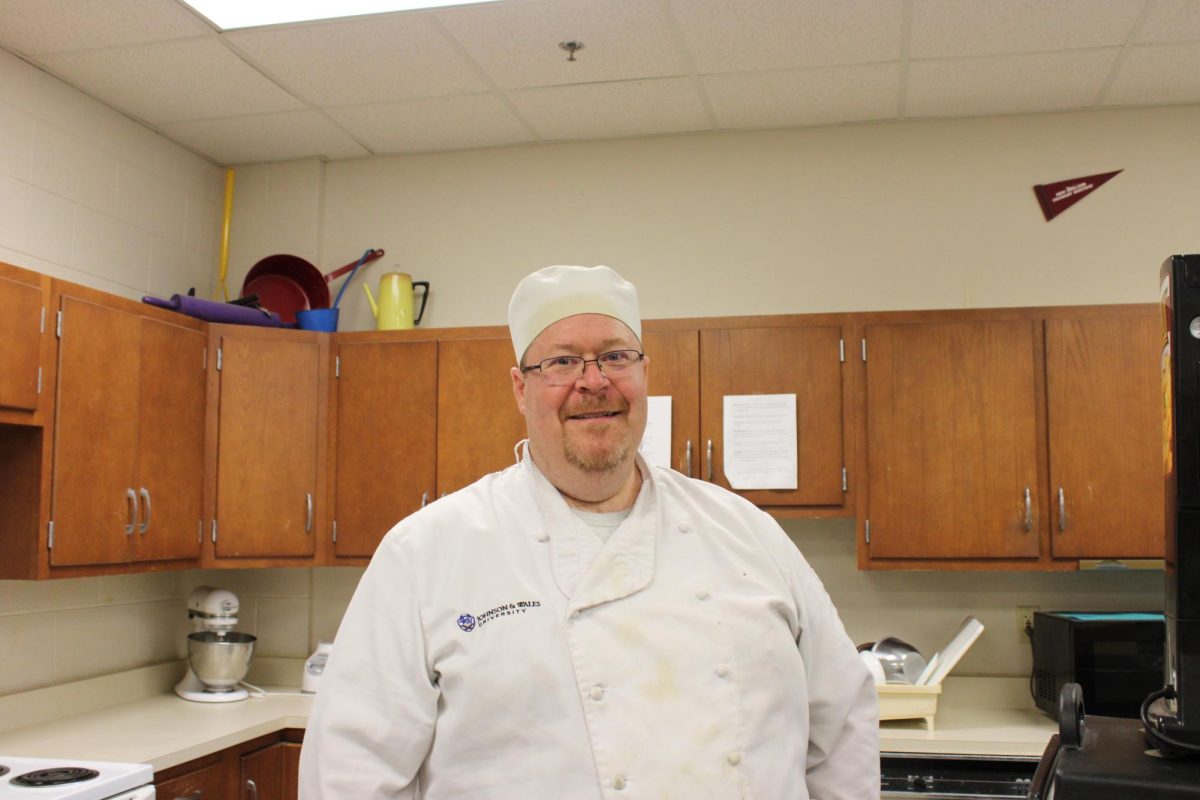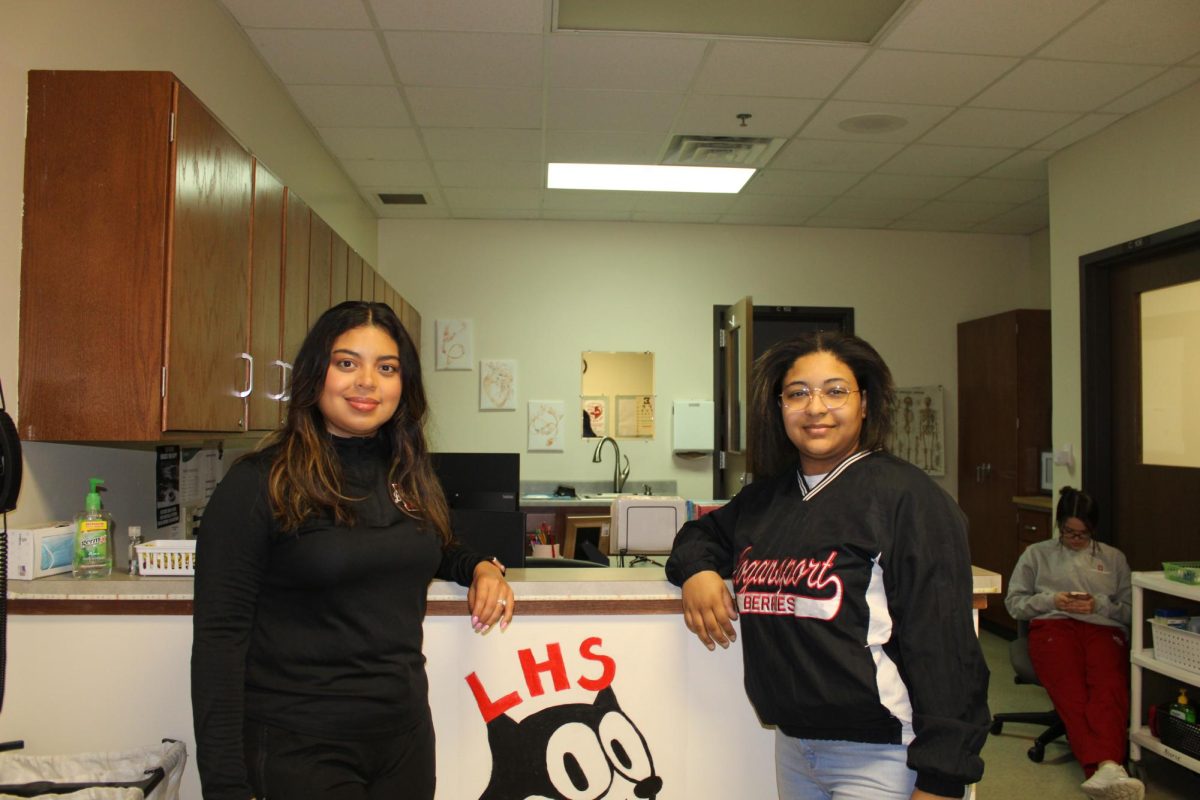In 1999, Elisa Banuelos and her family left their home country of Mexico in hopes of a better life. Banuelos was enrolled as a junior at Logansport High School and graduated in 2000.
“Arriving here, they did not know what to do with me,” Banuelos said. “When I graduated, there were only five Hispanic students who graduated with me. One was my cousin, one was from Texas, one was from California, one was coming from Chicago, and then you had me. I was the lowest of the lowest. I had the lowest proficiency in English. When I came here, I did not speak any English.”
As a result, Banuelos tries her hardest to give students the opportunities they deserve.
“My job today consists of me thoroughly reading students’ transcripts, and I try my hardest to give them the credits they deserve because I know I worked very hard for my qualifications in my country,” Banuelos said. “So, when I get someone from Haiti, El Salvador, Cuba, Mexico, I try my hardest to investigate the credits they earned.”
Banuelos’s own experience helps put her in the shoes of her students.
“There was no program in my time,” Banuelos said. “The teachers had the desire to help, but they didn’t know how. When I first got here, I noticed that everything was different, so today my job consists of me trying to help them adapt to their new life because I know the struggle. I also know what it’s like for their parents to be in that situation. My parents didn’t come to orientation because they didn’t feel like they belonged in America.”
Adaptation is not the only struggle ELL students face.
“The first thing that comes to mind is the language barrier,” Director of ELL Tami McMahan said. “Some of our students are enrolling into our schools, and English is going to be their third or fourth language. The second challenge that I think about is the complexity of navigating the overall school system. Understanding our school policies and procedures and the process of how to make content accessible to all learners is a huge task.”
English teacher Terri Jewell noticed that ELL students’ education varies.
“I think for students who have had interrupted or no schooling, this is especially difficult because they are starting from scratch as opposed to others who may have some skills in reading or writing in their home language, which can be transferred to learning in English,” Jewell said. “We also have students who don’t speak a written language, so those students may have to learn another language before they start learning English. It is very complicated.”
According to Banuelos, McMahan and Jewell, there has been an increase in the number of ELL students.
“Logansport Community School Corporation has enrolled 147 newcomers so far this school year,” McMahan said. “As a comparison, LCSC had 106 newcomers at this time last year.”
Jewell had to find ways to adjust and change. She stated that teaching has not become harder but “different.”
“What worked the year before may not work the next year, which is true of all years,” Jewell said. “I think trying to find ways to communicate with students with so many different linguistic backgrounds does challenge the status quo of teaching. Trying to make sure we are meeting everyone’s needs and advocating for our students will never go away, but we have to be flexible and seek out help when we don’t know what to do”
Banuelo shared a similar fact. She noticed that she had to change over the years along with the program.
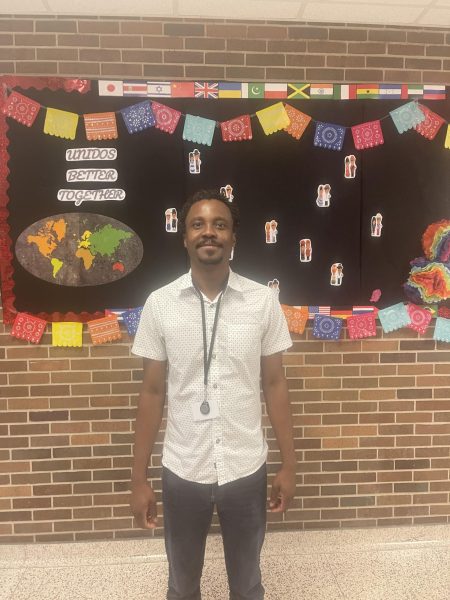
“I believe that there are always ways to grow,” Banuelos said. “However, in my opinion, sometimes the students aren’t taking advantage of what we have. That’s what I’m seeing. I feel like we are trying our best to help them. We modify and adjust to try and fit their needs, but I don’t think they are giving us much, or we give them too much comfort that they just rely on it and never learn.”
According to Banuelos, there are cultural differences as well that affect the students’ view of school.
“Attendance is sometimes not a priority for some of the students,” Banuelos said. “Here, attendance is important. It’s required, but they are coming from a culture where attendance is not important. They would rather go to work, stay at home and help their parents, or take care of grandparents. Their priorities are much different. The priorities for teenagers in their culture are to get married and have kids, and here they are ‘wasting’ their time.”
Banuelos said that because of these cultural differences, student life can become disconnected.
“They are here because they are forced to because of age, the law, and the immigration process, so when you are forced to do something, most of the time you give up without even starting,” Banuelos said. “Because of the fact they don’t actually see themselves getting the opportunity to become a professional one day in this country, they usually go back or find a job wherever they can.”
According to Banuelos, there are many students who do want to go to school and work as well.
“Those are the students who, even with the limitations at least, are gonna get a high school diploma,” Banuelos said. “Does it mean anything to them? Is it gonna help them? Probably not, because they don’t have the legal status or the parental support that is going to keep them going to the next level. That’s why most are like I’m just gonna finish and get out of here.”
Banuelos believes that the mindset of the students sometimes needs improvement. She tries in multiple ways to help the students.
“We as a corporation try our hardest,” Banuelos said. “I personally schedule home visits to see what is going on and help with the nurses when it comes to getting shots and vaccines. There’s the Felix Pantry and Closet. So, we do have a program right now with 18 students. It’s Tuesdays and Wednesdays with transportation to their houses. Only two students stayed yesterday. We can give you. We can feed you, but we cannot make you swallow.”
According to Banuelos, a Cuban parent asked “Wow this building is so amazing. Why are there so many students who don’t come to school?”
“I told him, ‘Listen sir, they can qualify to get everything free,” Banuelos said. “School is free. Transportation is free. Computers are free, but the student who no longer wants to go to school, I can’t do anything about that. The interest of the student who doesn’t want to go to school now isn’t the same as the interest of the students who worked hard to get to this country. The students who came before passed many sacrifices to be here to cross the border they risked the truth of life or death. I see the difference with the students who suffered more. When something is achieved through sacrifice, they tend to value it more.”
Money and time aren’t answers to the solution without student commitment.
“Even if we had more things, or money to give to them, it would be the same because now they probably feel like they deserve it,” Banuelos said. “I mean we are really trying. We have excellent teachers. Mrs. Nelson is an awesome ELL teacher. Mrs. Bauer does an excellent job at teaching math. Mrs. Plutat is wonderful. I mean we have teachers who care, but if they don’t do their part, it’s a repeating cycle.”

Many of the students today see America as a never-ending challenge instead of an opportunity.
“Everything that is difficult, I consider it as a challenge, a challenge that I must rise.” Haitian Coordinator Jonas Bonneval said.
McMahan noted that many ELL students overcome challenges and limitations.
“There are so many wonderful people within our school district and our community that embrace diversity and help to foster academic success and personal growth for all of our students,” McMahan said. “More importantly is our students themselves and the persistence and self-advocacy that they demonstrate is amazing and inspiring.”
Teachers like Jewell have seen that persistence can achieve results after taking ELL training classes.
“I feel like I was flying blind with my ELL students before I took the classes to be certified in teaching ELL students/multilingual learners,” Jewell said. “Many of the classes challenged my way of doing things and helped me to empathize with my students. I think remembering that we all are human, but have our own ways of doing things, culture and language, will always be true. The classes also enabled me to advocate for my students better because I have a better chance of realizing/identifying unmet needs in my students who are struggling. Having more tools to help students is always welcome in my book.”
From the administrative standpoint, several things are being done to make sure students are motivated in academic success.
“From the district perspective, we have implemented many different program initiatives to promote cultural inclusion in not just our schools but our community,” McMahan said. “This past year we hired Jonas Bonneval as our Haitian Creole Family Liaison. Jonas has been busy building relationships with our Haitian Creole community, similar to what Elisa Banuelos has done for the past 23 years. When new families enroll in Logansport, many times they reach out to Elisa first. That is because she has spent countless hours building relationships and trust within our Latino community. Our families know that she will help them in any way possible. Another initiative we are in the process of implementing is the use of translating earbuds. These earbuds will allow students to receive live instruction in their home language, which helps create an equity with instruction.”
Even from the legislative perspective things are being done. On Feb. 9, Sen. Stacy Donato visited the LHS ELL Program.
“I am on the education committee,” Sen. Donato said. “I have a passion for education, and l live in Logansport. When you legislate, you try to do it from home. I’ll admit when I get down to areas like Elkhart or different pockets, it’s a lot of adaptation for many different cultures, so I have to take that to the legislature and say hey where I live I need this. I have to convince my colleagues that this is important. If you were to ask somebody who was perhaps in the west side of the state, they may not have an answer, so it’s important to me. These are my constituents; whether they can vote or not, it doesn’t matter.”
Sen. Donato sees the students as her people.
“These are my people, these are the people I take care of.” Sen. Donato said “My job is to be an advocate for those who can’t speak for themselves. I try to make sure they have what they need because in the end, they are the next Americans. This is their home now, and I’m here to make their home a better place.”


